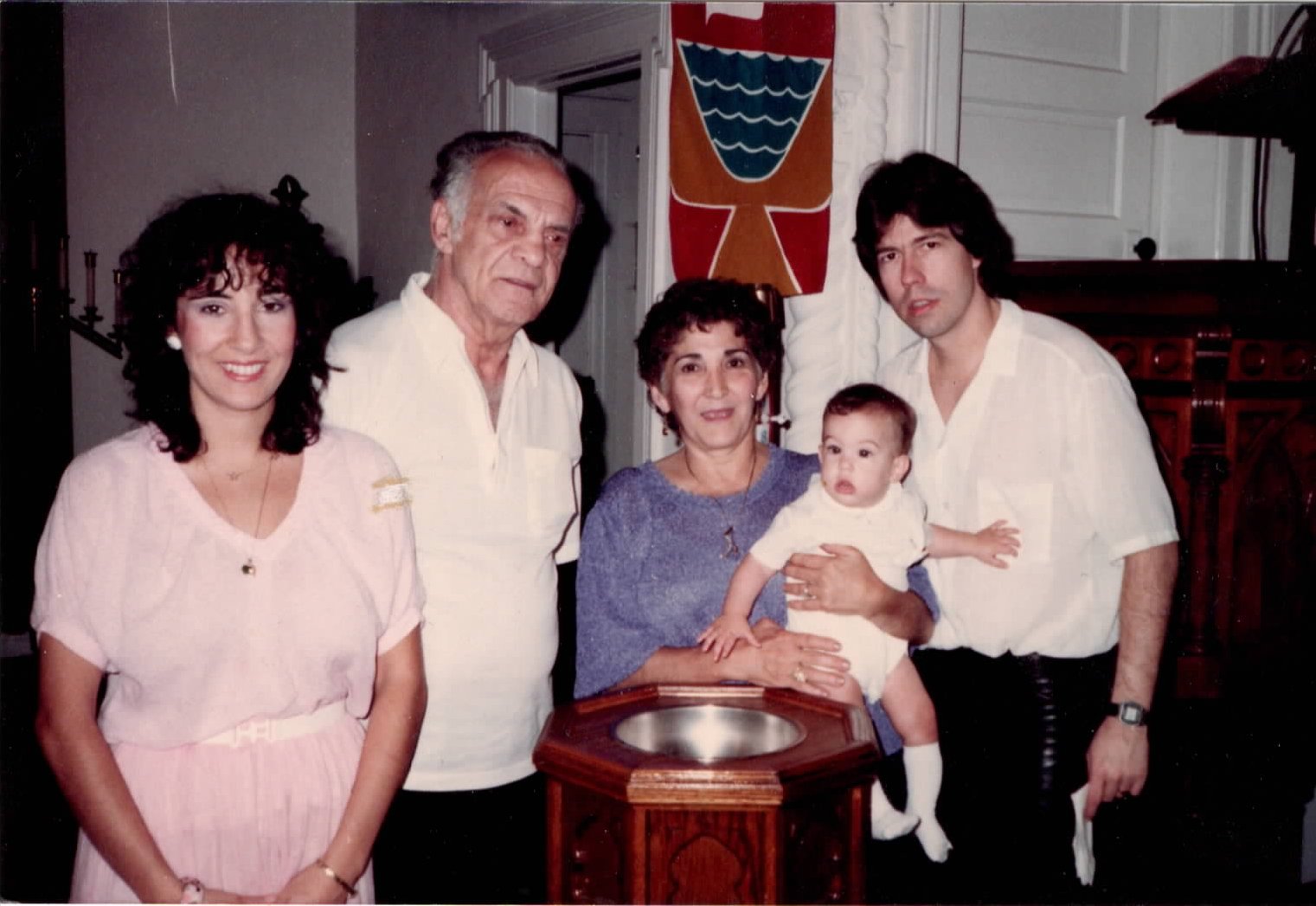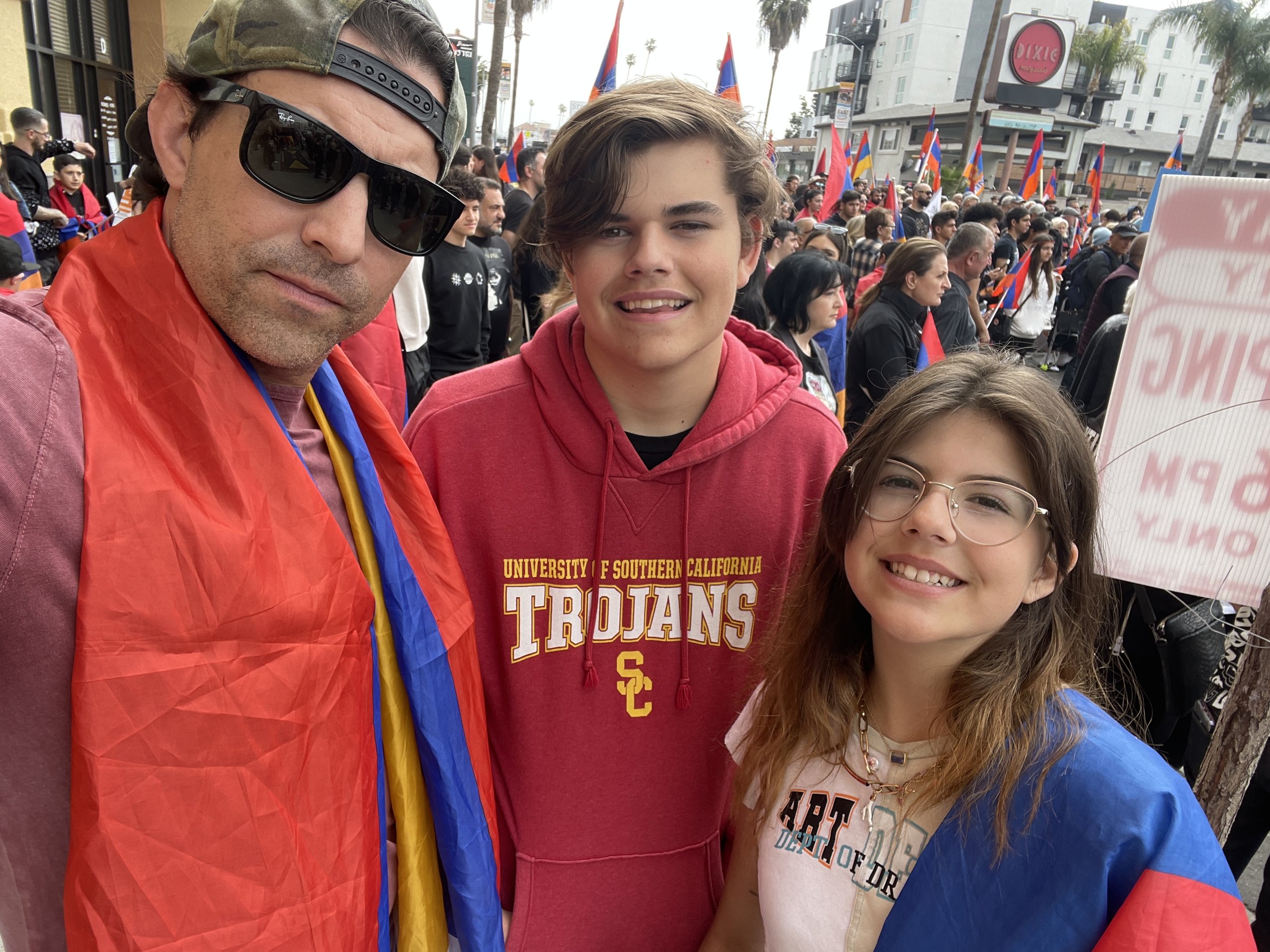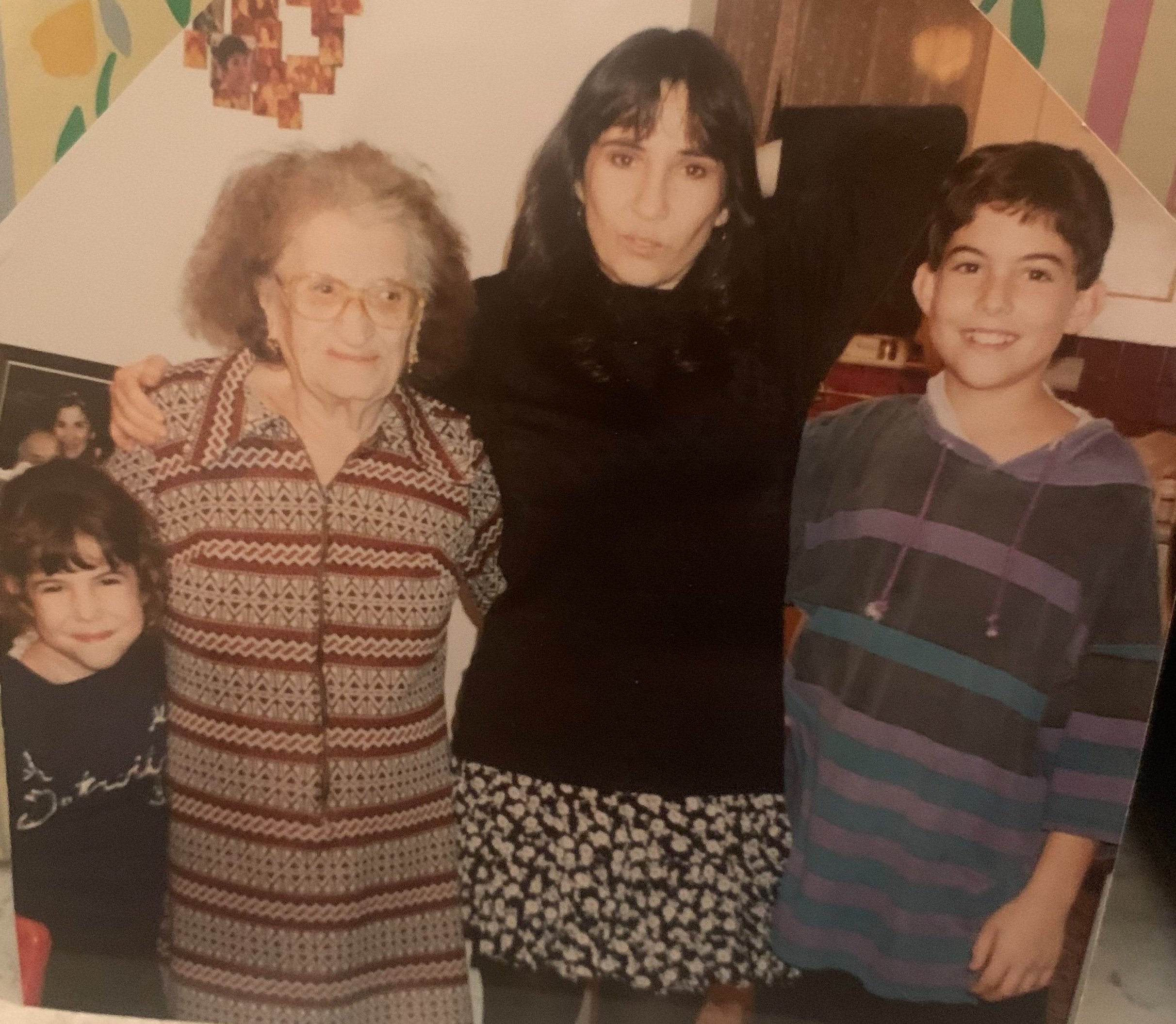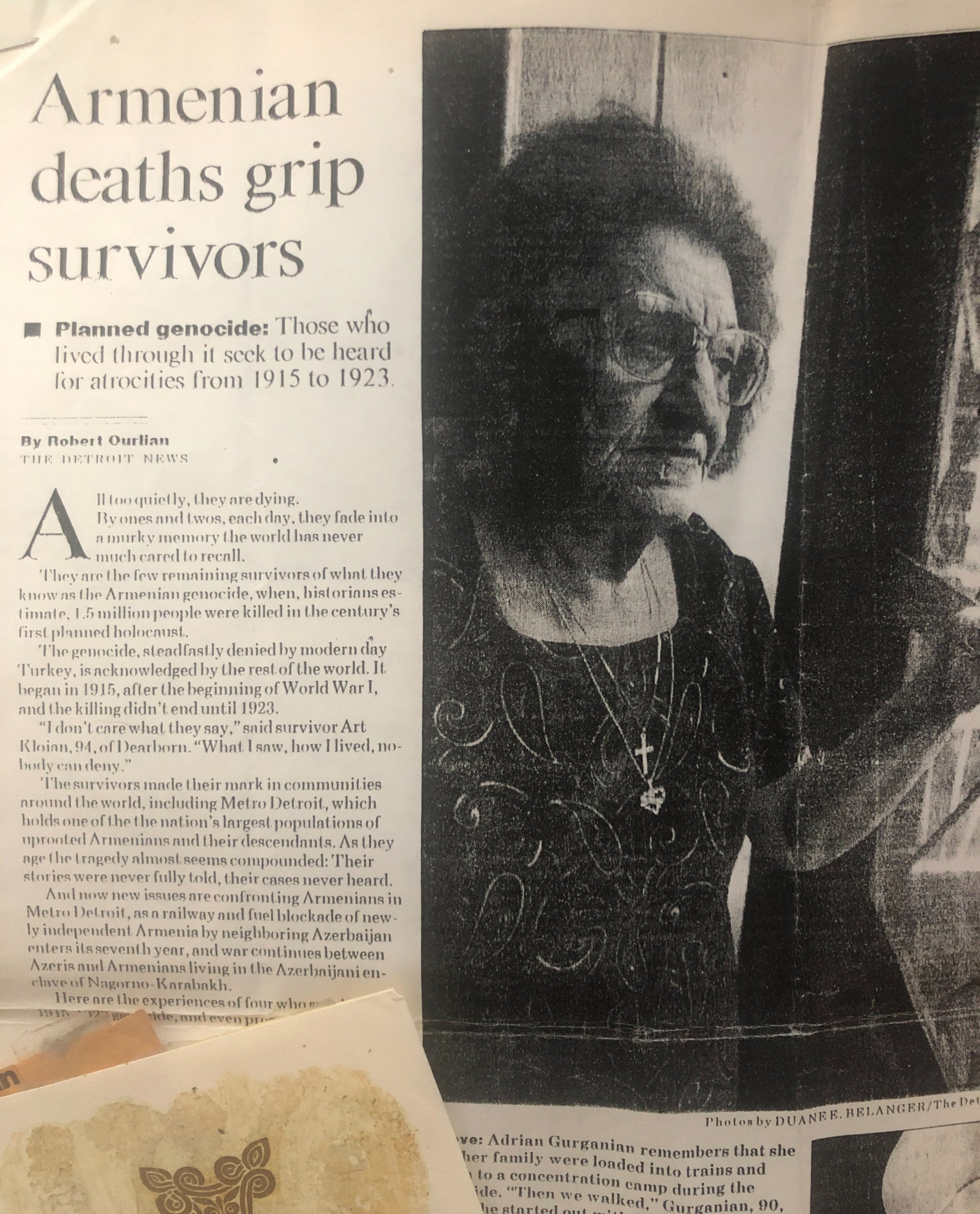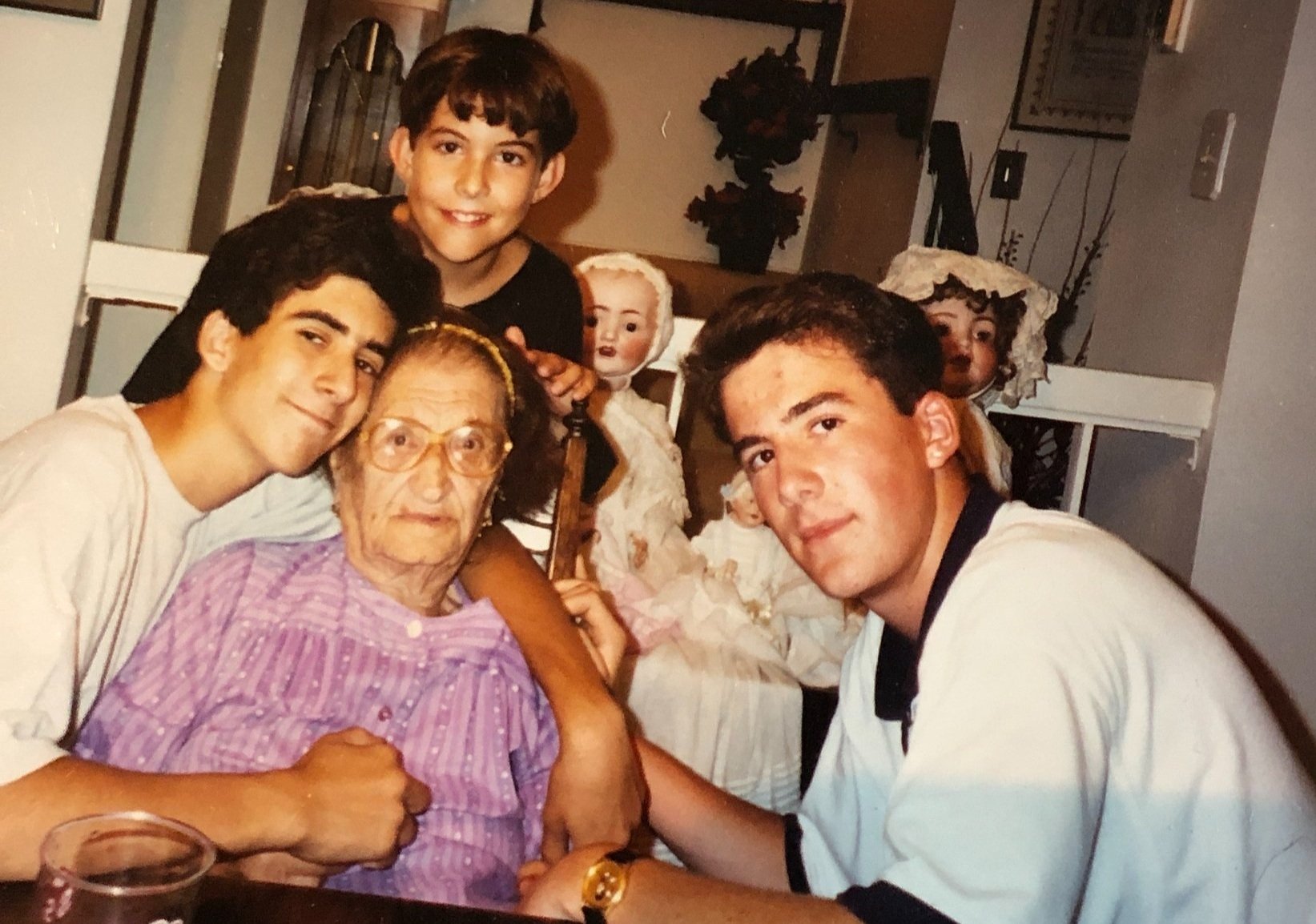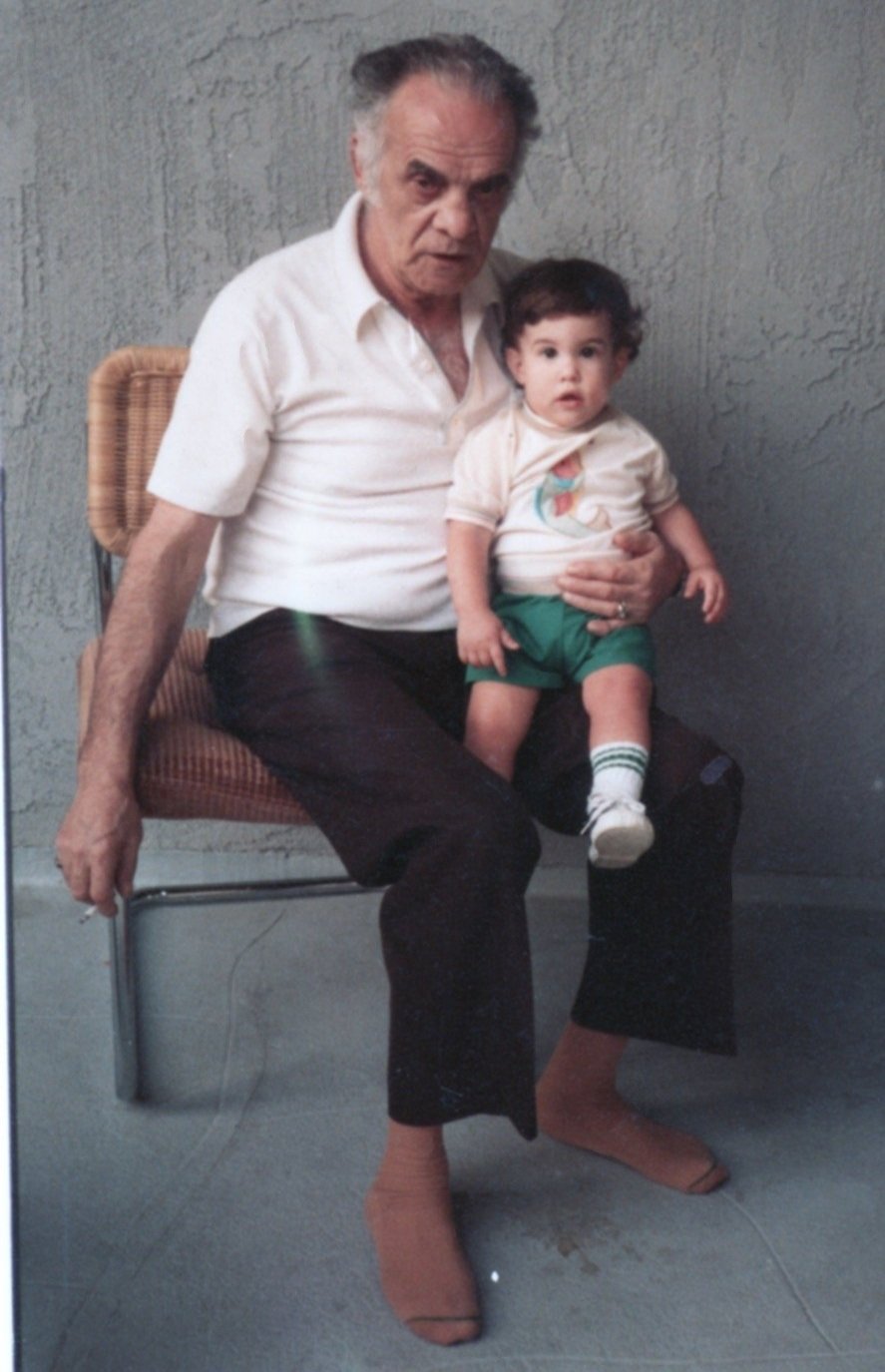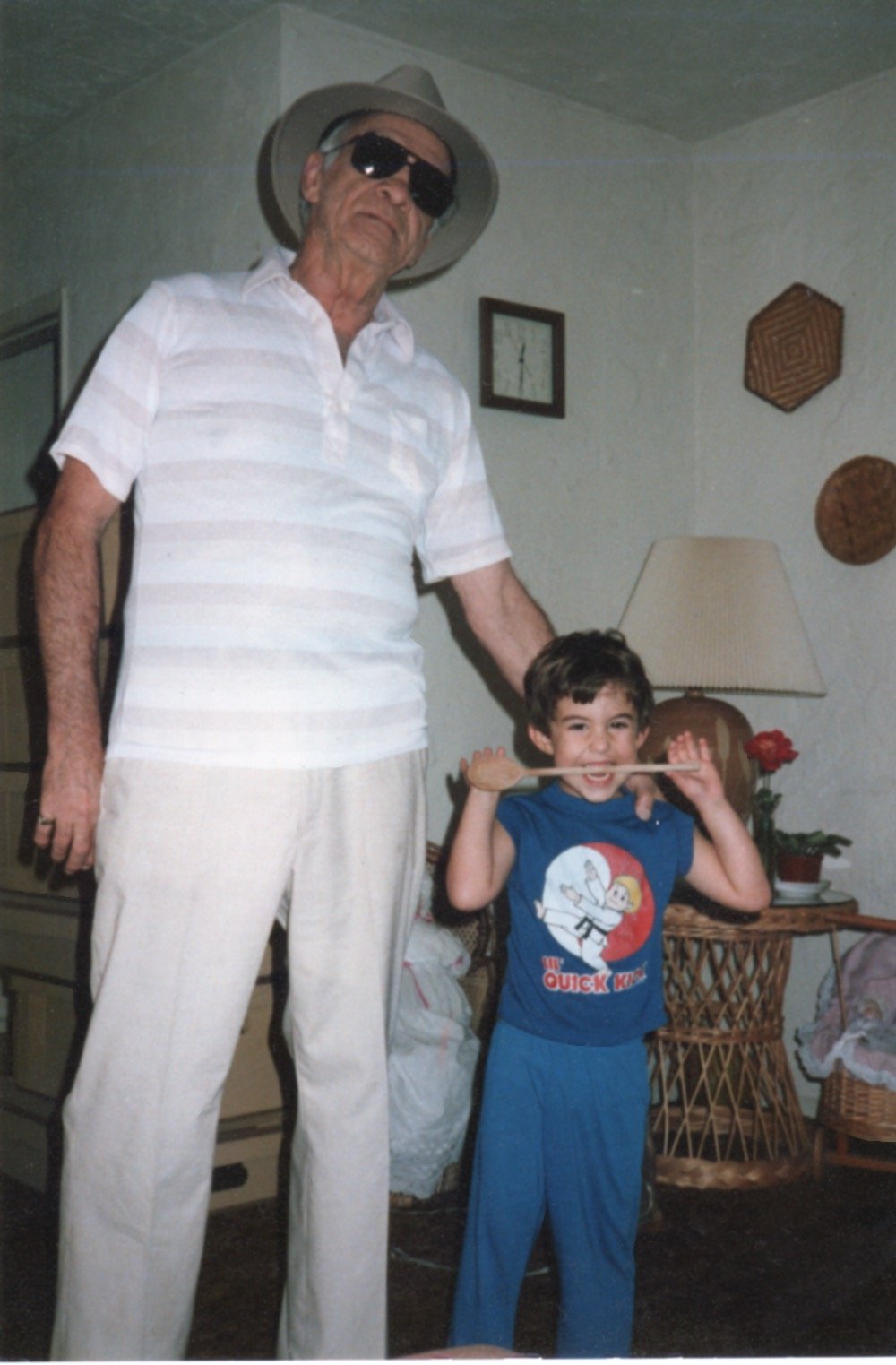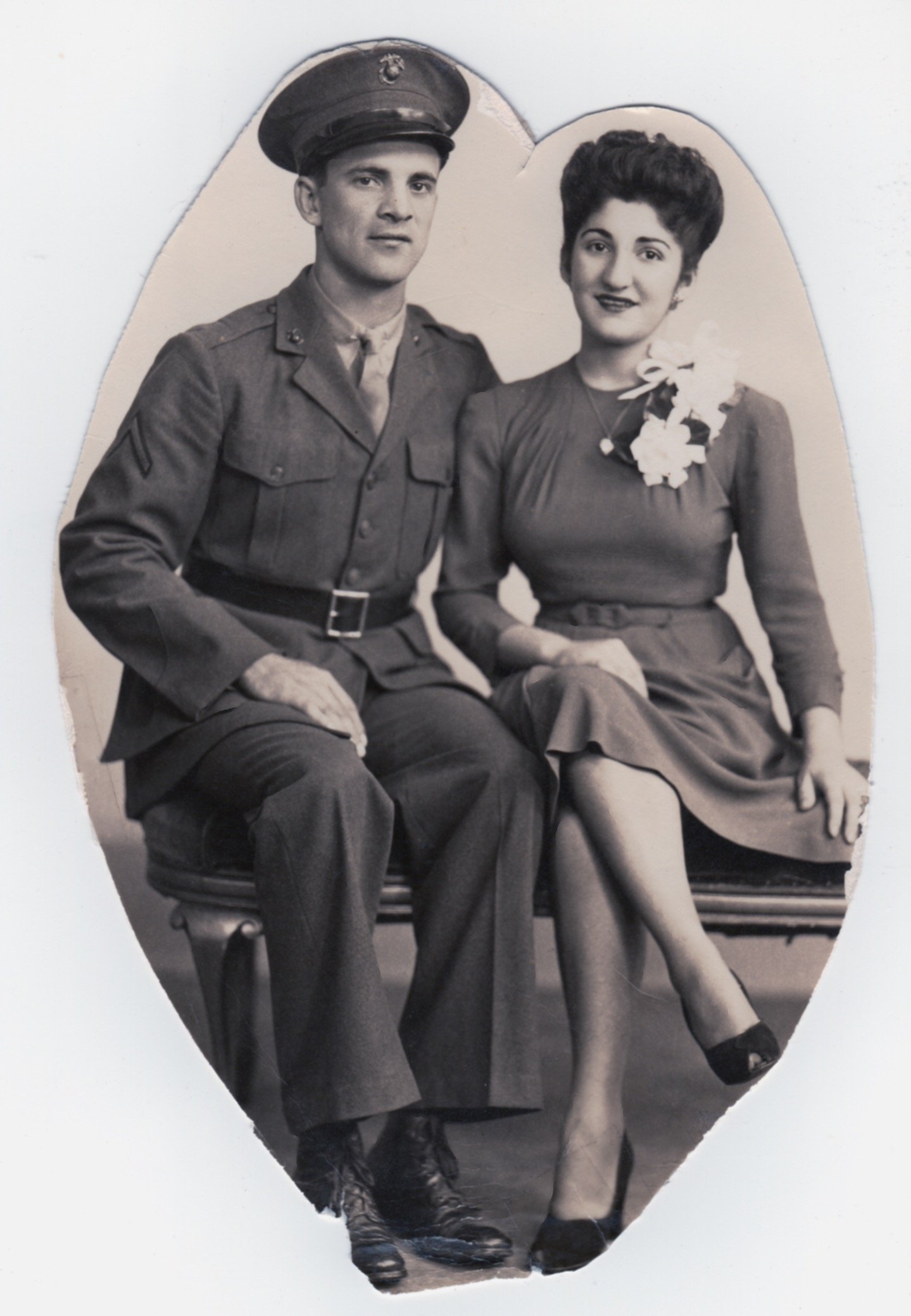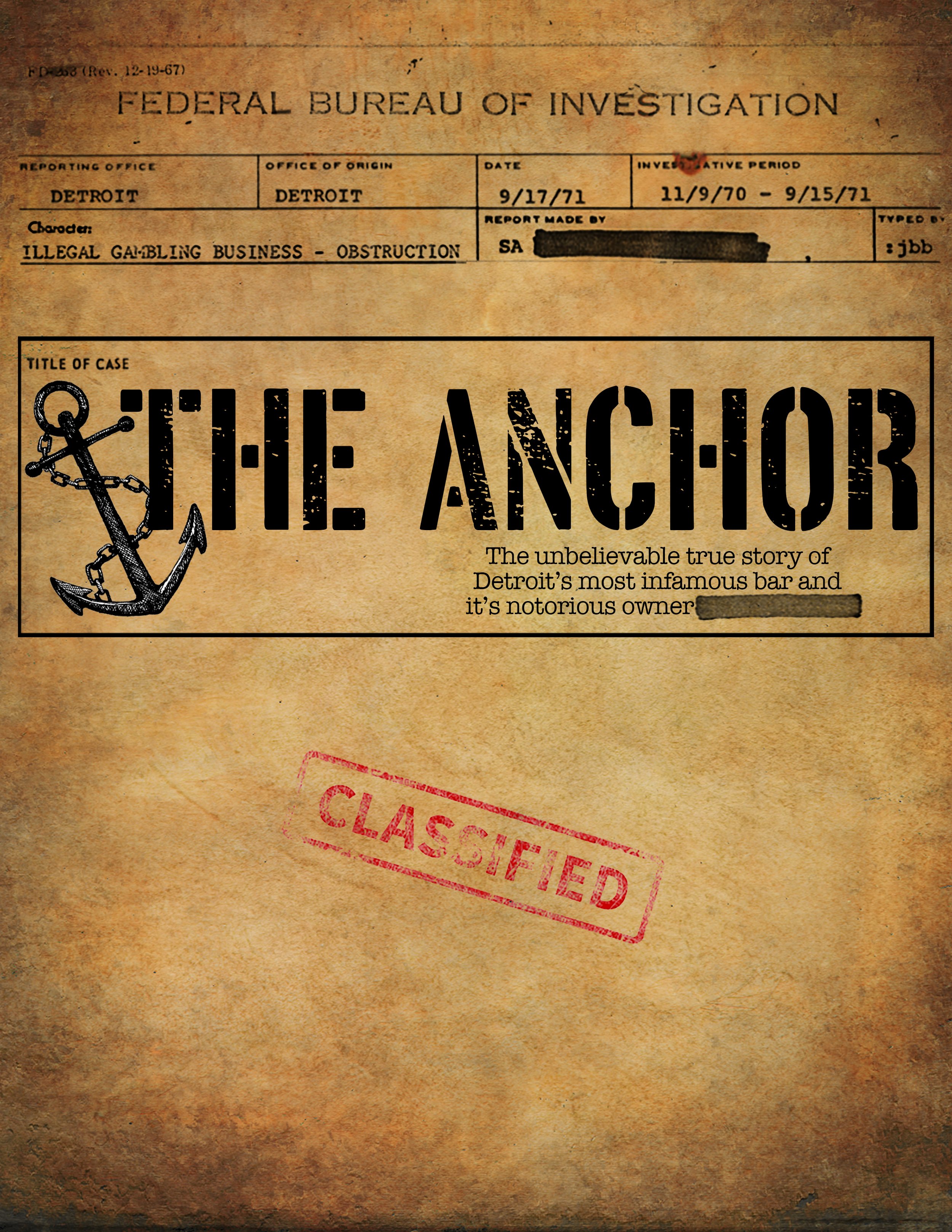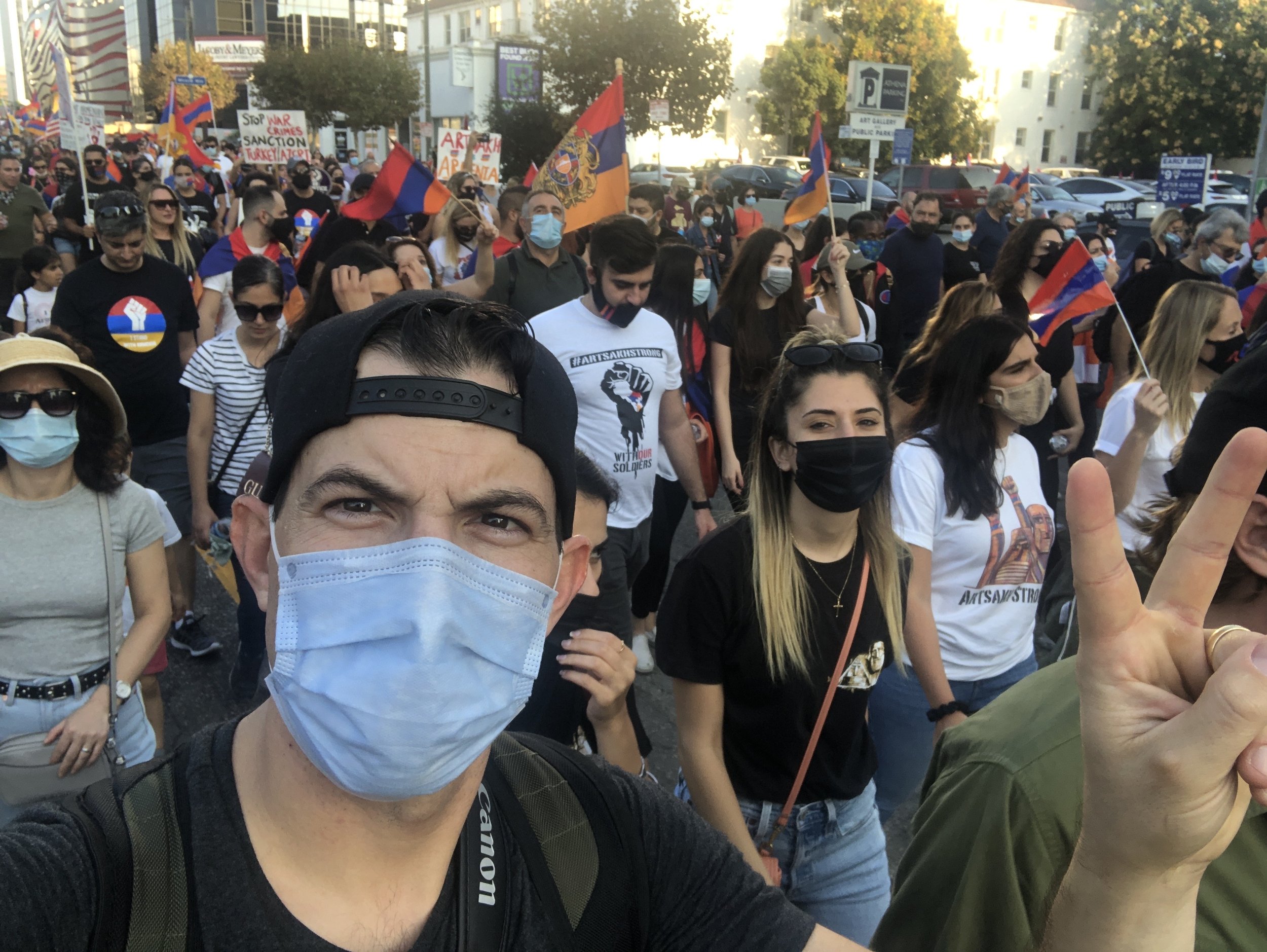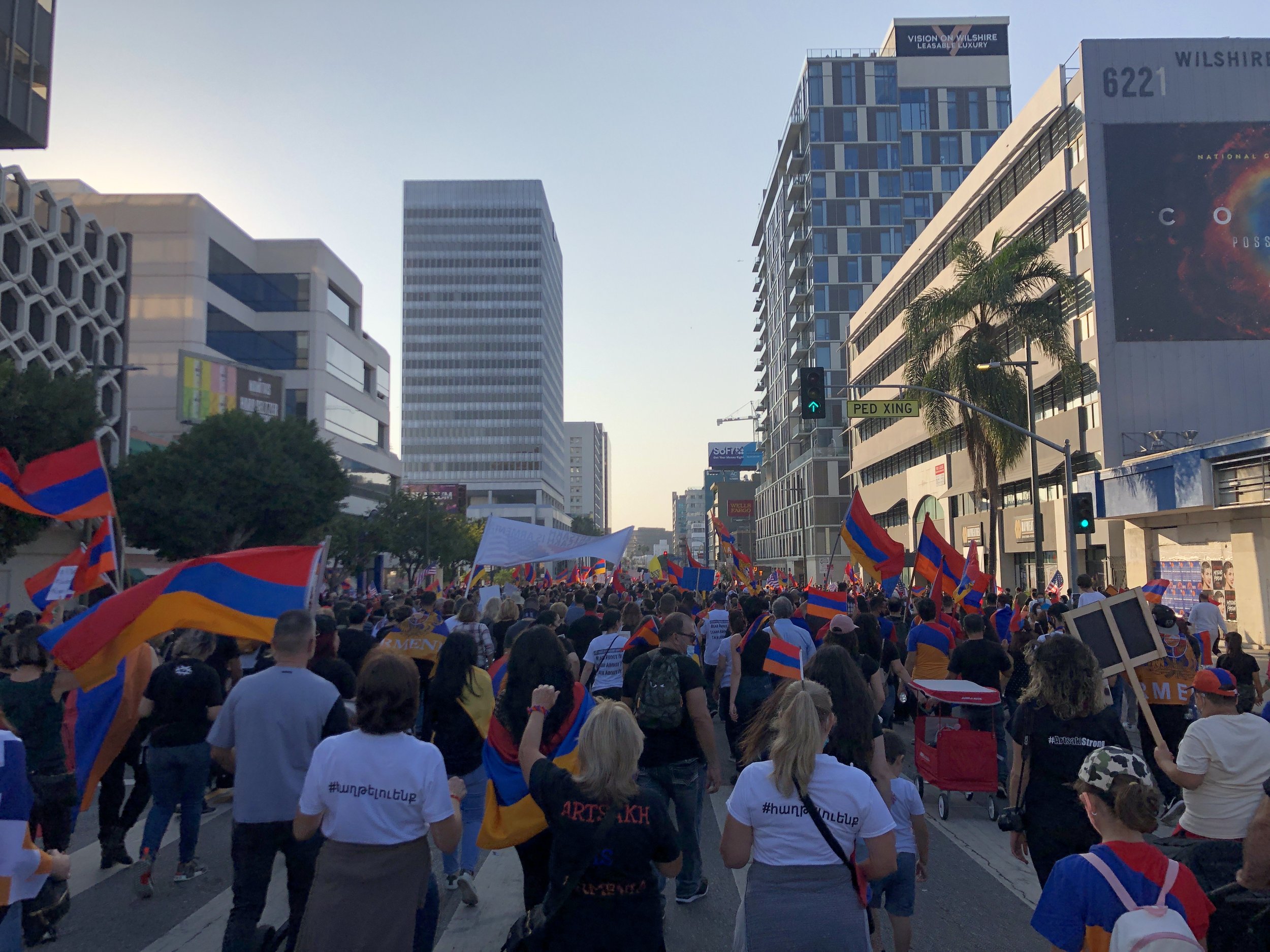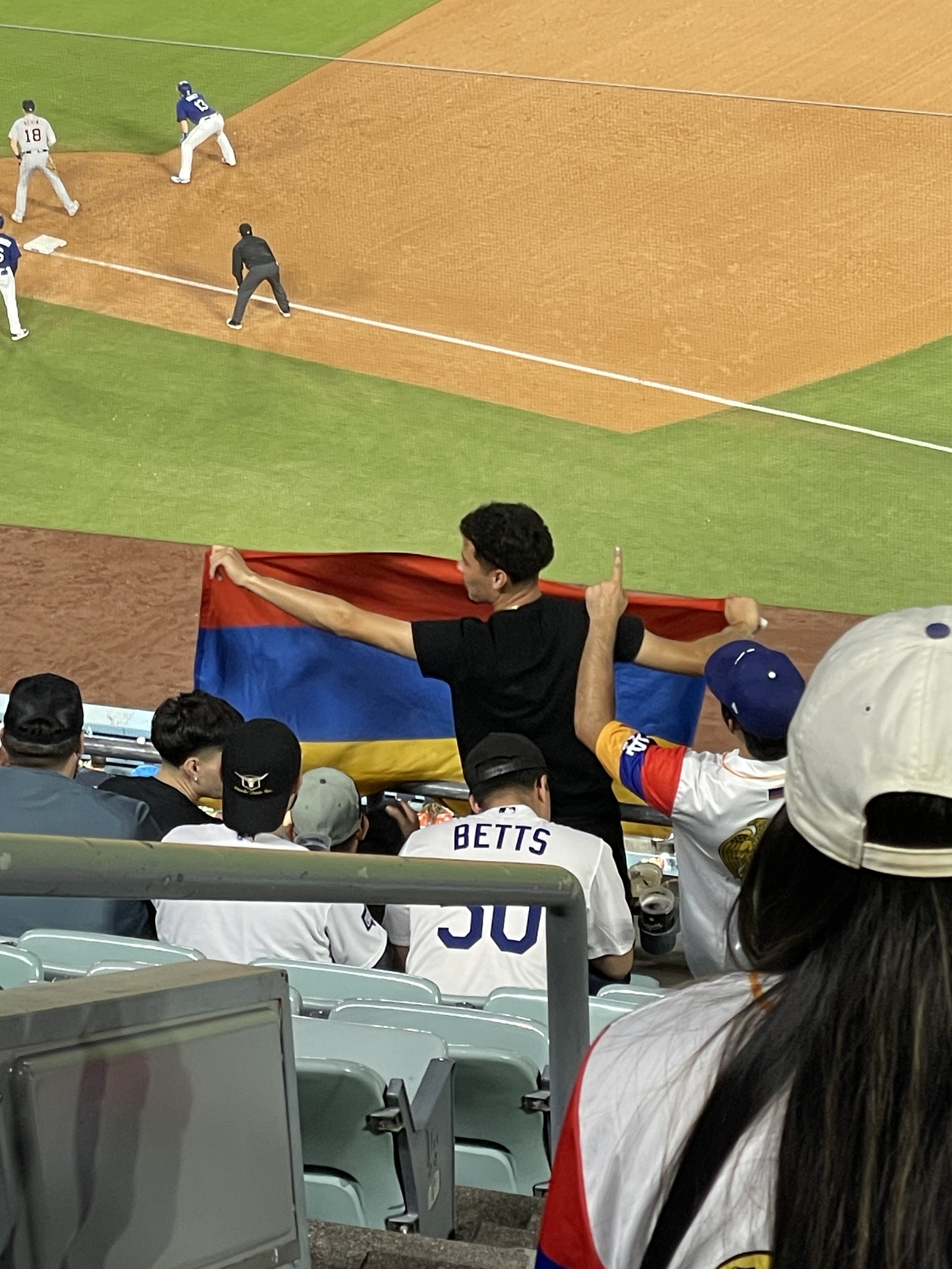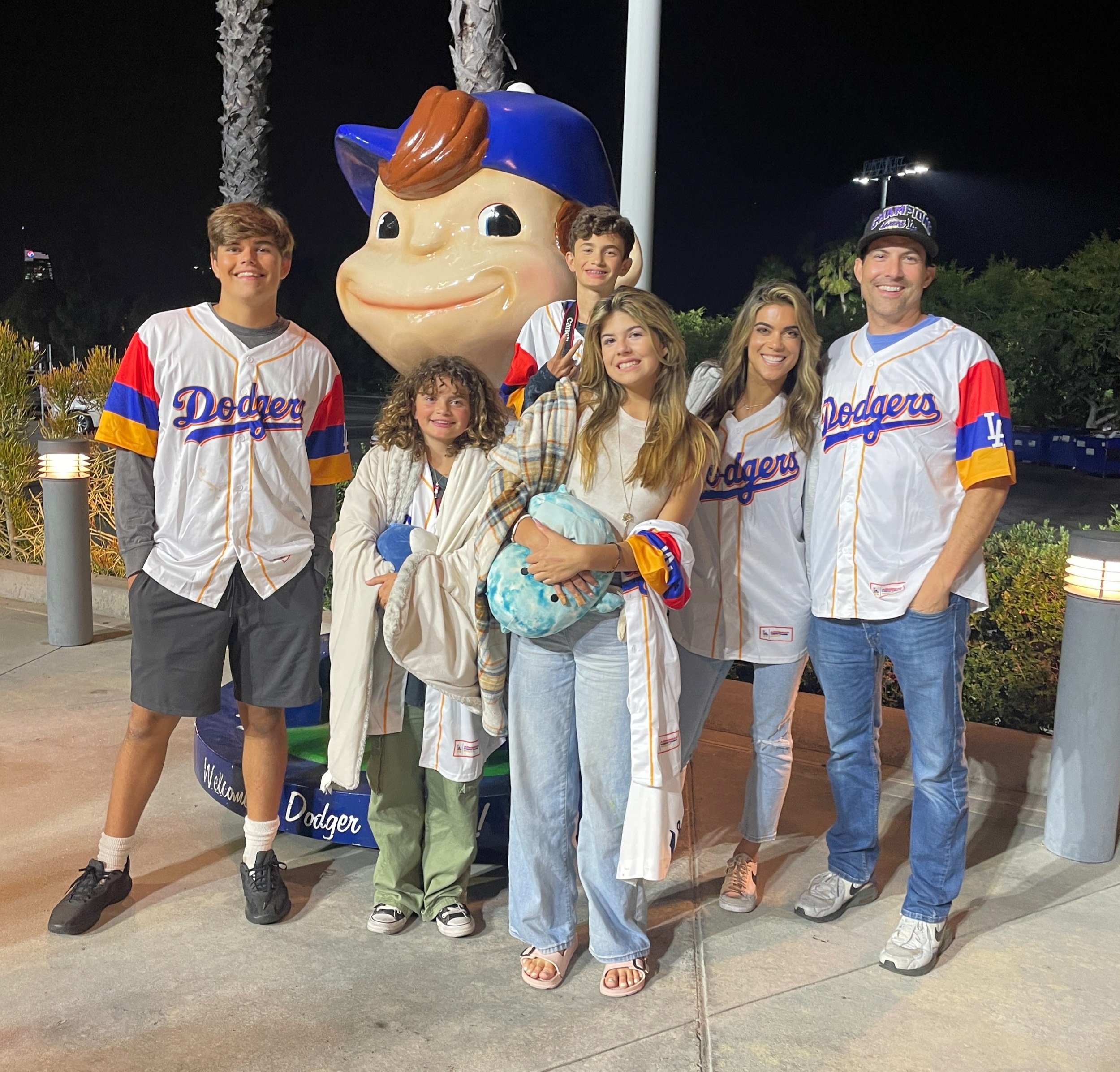Searching For My Armenian Identity
Who are we? Where do we come from? What does it mean to be part of a community? I’m now 40-years-old and well into my life with two kids, now two step-kids, a war veteran, a widower, now starting my second marriage and I still ask these questions of myself. I’ve grown even more curious about who I came from. I’m a six-foot-two, protestant-raised, anglo-saxon white guy raised in the 80s/90s San Fernando Valley, Los Angeles with the last name Ham but I am also third generation Armenian. I have not been one to identify as an Armenian throughout my life; I didn’t grow up with Armenians, I don’t speak the language, my last name doesn’t end with an “ian” or “yan” and I’ve lived very much outside the culture. I think the story that has kept me curious and tied me to my lineage the most is that of my great-grandmother Adrian Gurganian. At the age of 12 years-old she navigated the genocide of the Armenian people that started in 1915 and would end with the murder of approximately 1.5 million of the indigenous Armenian Christian minority in the region. The older I get the more her story resonates, motivates and gives me pride. What I’d like to explore in this post is how I perceive my Armenian heritage now as an American-Armenian and why I identify now more than ever with my ancient people.
My mom, dad, grandpa and grandma baptizing me in the Lutheran church, 1983.
My Armenian family celebrating grandma and grandpas 50th anniversary, 1992.
My great-grandmother and me playing with wrestlers, 1987.
My Armenian family celebrating my grandmother’s life after her passing, 2017.
My kids and I at the Armenian Genocide Remembrance March, 2023.
The Legacy of an Armenian Family
Armenians are an ancient people with amazing contributions to the world with a long storied history. My grandparents on my mother’s side were first generation Armenians and their parents (my grand parents) arrived here in the United States in the early 1900s as young adults, all of them attempting to escape the horrors of what was happening in the “old country.” My journey to understanding my Armenian heritage has been a long road and I’m continuing to learn what it means to be an Armenian to me. As with many ancient people we pass down our legacy by sharing stories of those who came before us, perhaps it’s why I’ve always been deeply attracted to telling stories. I specifically remember the first time I learned the true power of a story and it changed me forever. It was through the eyes of my Great Grandmother, Adrian Gurganian. As early as eight-years-old I heard great grandma talk about the atrocities of what happened to her, her family and her people. We would oftentimes have large Armenian gatherings and a few times she would sit all the grandchildren around her and tell us her gripping tale. When great granny talked we all stopped and listened. She was also kind and warm, she would just sit and play with me for hours. Over time I’ve pieced together her whole story and I’d like to share a little bit of it with you.
My mom Avah Derderian’s 18th birthday surrounded by aunts, cousins and great grandma is on the far left, 1972.
My mom at her wedding with great grandma, May 1982.
Me as a little one and great granny, 1983.
Mom, Rachel, great granny and I, 1991.
An Old Conflict That Continues Today
In 1915 the Ottoman Empire began the systematic annihilation of the indigenous Armenian Christian minority within Turkey and elsewhere in the region. Overall there would be approximately 1.5 million Armenians murdered during this time. In Adolf Hitler’s 1939 speech ordering the genocide of the Jewish people he asked rhetorically “Who, after all, speaks today of the annihilation of the Armenians?” To this day the Turkish and Azerbaijani governments deny these atrocities ever happened as they continue their expansive aggression towards the modern state of Armenia with their war on the Nagorno-Karabakh region. I’d like to share a little bit about my great grandmother’s story and at the end of this post more about the on-going conflict.
This is on one of the walls at the Washington D.C. Holocaust Memorial.
An excerpt from an article written about great grandma’s story.
My sister and I with great grandma Gurganian, 1993.
A Little Girl’s Genocide Survival Story
My great grandmother was 12 when the genocide started in 1915. Systematically her family would all be murdered one by one. Her father was beaten to death by Ottoman Soldiers as he was getting water for his family from a nearby river, her mother and infant brother were smothered to death while being transported in overly crammed train cars carrying Armenians to death camps, her older sister traumatized by what was happening jumped off a bridge committing suicide, and her younger sister was kidnapped by soldiers. After weeks of marching alone, crammed in trains, watching her family murdered, she was eventually taken to the Der-el-Zor work camp in the desert of Syria, where approximately 200,000 Armenians were killed.
I was asked to give the keynote speech at the 2023 Tillman Foundation Summit where I shared some of my story including my great grandmother’s survival jounrey.
An Armenian Woman’s Journey To the U.S.
As little Adrian attempted to survive in the Der-el-Zor work camp she was kidnapped by an Arab man who then held her in his home for the next few years where he was grooming her to be his third wife when she came of age. Eventually she would escape to be a nurse on the front lines of World War One having to treat Turkish Soldiers. It wasn’t until she was 17 where a recently immigrated Armenian man in the U.S, paid her way to America with an arranged marriage, my great grandfather Vahan. A beautiful part of this story is her sister that was kidnapped, that Adrian thought was dead, survived also, came to America years after the war and they were reunited! My great grandmother passed away when I was in junior high, her life and her story continues with me. We are still here! I share a little about my story in a wider context in a speech I gave at the Pat Tillman Leadership Summit in 2023 where I spoke about the impact of my great grandmother’s story. Check it out above.
My cousins and I with great grandma Gurganian, 1992.
Great grandmother would tell the story of how she collected oats from horse manure on the long death marches so that she would be able to eat. When asked why she does that she responded “I will live as they have died” referring to those Armenians dying of starvation. I had that line translated into Armenian and framed. I also have that tattooed on my ribs to remember the sacrifice of my granny.
My great grandfather, Vahan Gurganian (Adrian’s husband). After their marriage he would leave the U.S. to go back to the Soviet Union and fight against the Ottoman Empire.
My Grandfather: Armenian, American War Hero, Bar Owner, Gangster
My grandfather Leo Derderian was another family member that left an indelible mark on my life. I remember sitting on his lap and he would hold me tight telling me how I could be anything I wanted to be, even the President (no thanks but appreciate the encouragement). He was one of the first people that made me believe that there was something out there that was special, I just had to go and get it. He wasn’t a particularly open or warm and as my mother would tell me over the years, in fact he could be quite cold, angry and was an alcoholic for most of her life. It’s interesting how as a grandson I have a completely different perspective on him and I have since put together his story which is so fascinating that I’m working on a script about it.
Me and Grandpa Leo, 1983.
Me and Grandpa Leo, 1987.
Me and Grandpa Leo on a plane, 1988. You can see little Rachel on the bottom.
The War and Leo’s Return Home
Leo was born LeVon Derderian in Niagara Falls, New York in 1918. Leo’s family moved to Detroit Michigan when he was young after his father got a job working at the Ford Motor Plant. Leo was 22 years-old when the Japanese Empire attacked Pearl Harbor on December 7th 1941. Leo worked with his father at the Ford Motor Plant at that time and heard the announcement on the radio as the whole factory shut down to listen. The following morning Leo and some friends enlisted in the Marines. Grandpa would leave shortly after but not before he would marry my grandmother Adeline Gurganian (Adrian’s daughter) and leave her pregnant with a son, Leo Jr. Grandpa would return from the war having fought in some of the most harrowing battles in the Pacific; Guam, Marianas Islands and Iwo Jima, Volcano Islands as you can see on his military papers below. Grandpa talked very little about the war with any of our family members. Upon Leo’s return to America he now had a two-year-old son, a wife and no job. Leo decided he would borrow some money from family and open a grocery store, which only lasted for a few years because Leo’s real love was for gambling and booze, so a few years later he’d sell the grocery store and open a little bar called the Anchor in downtown Detroit.
Leo and Adeline Derderian, 1942.
The title page for my screenplay The Anchor.
The Anchor
Regis O’Brien was an Irish Boxer Marine and was the Heavy-Weight champion of the Pacific, he and Leo were best friends. While Leo and his fellow Marines were on the warships heading to the Pacific before and after the fighting they would have boxing matches. Leo would take bets from all the Marines on the bouts and would sell booze as well that he had stolen from the officer’s quarters. Leo’s love for sport, gambling and booze would continue once he opened the Anchor bar, eventually that would lead to the largest gambling raid in U.S. history years later.
On the morning of May 6, 1971, two pool players at the 4th Street Anchor bar broke off their game, jumped over the bar and announced, “This is a raid!” Hundreds of Detroit Police and FBI Agents assembled that morning to collect and indict 150 civilians and 16 Police Officers, with the primary focus of the raid being Leo Derderian (the bar owner) and Chickie Sherman (the bookie). Chickie had been in and out of prison for working gambling books over the past decade and he and Leo became partners “in-crime” using the Anchor Bar as their office. The two took bets on everything from horse racing, to football, baseball, hockey and everything else you could bet on while serving one of the best burgers in Detroit, cold beer or your favorite spirit.
Berl Falbaum was a newspaper journalist who spent much of his time at the Anchor Bar. Several years ago he gave me the rights to the book to honor grandpa’s story and legacy.
A page from the book.
Another page from the book.
Defeating President Nixon, J. Edgar Hoover and the F.B.I.
That day in May 1971 Leo and Chickie were arrested and accused by the Feds of running a $40K a day (16 million a year) gambling ring, they were looking at 20-30 years in federal prison (the F.B.I. grossly overstated the amount of money coming in). After three years of court battles, the entire case was thrown out because the Nixon Justice Department forged the wiretap authorizations (making them illegal) under J. Edgar Hoover’s F.B.I and Attorney General John Mitchell (who would end up going to prison for the watergate scandal as the highest ranking government leader to ever serve time). The catastrophe of the bar raid would be a great embarrassment to the Department Of Justice but would bring so much attention to Leo and the bar it became the best “dive bar” in Detroit. To this day Detroit is one of the gambling meccas of the U.S. having opened multiple casinos over the past few decades. The screenplay I’m writing about the whole story is based off the book written about the raid and Leo’s many escapades “The Anchor, Leo & Friends.”
My Uncle Vaughn (who ran the bar after grandpa) gave me all the F.B.I. files for the case where J. Edgar Hoover had signed some of the documents accusing Leo.
Newspaper clippings about the ‘71 raid.
Leo and Chickie became local legends when the F.B.I. wiretaps were found to be illegal. Picture on the Left is Grandpa, 1971. On the right is his son Vaughn, 2016.
Granny Adeline, Leo’s Loyal Wife and Partner
The bar raid was a major historical event that would be the beginning of the end for large government oversight on gambling and career politicians like John Mitchell, J.Edgar Hoover and Richard Nixon. J. Edgar would die a couple years after the bar raid and both Nixon and Mitchell would be brought down for their attempt to illegally wiretap the Democrat Headquarters at the Watergate hotel (which they almost got away with at the Anchor). But by now you’ve probably put together that grandpa was pretty mischievous; a man deeply haunted by the demons of war, a bar-owning alcoholic and a no-bullshit fighter against his perception of an oppressive government, this made him not always the best father or husband. The true glue that kept the whole family together was Adeline Derderian (formerly Gurganian) my grandmother and Leo’s dedicated wife of over 50 years.
My mom and dad’s wedding with grandpa and grandma Derderian, 1982.
Grandma, Rachel and I, 1993
Grandma and me, 1996.
Grandma and me, 2006.
The Matriarchal Glue That Held Us All Together
Grandma Ad was warm, loving and the matriarch of the family. When our family would have large gatherings it was my grandma cooking, wrangling the kids, waiting on grandpa and holding down the fort. Grandma was loving, kind-hearted and also wouldn’t take shit from nobody. One thing she repeated all the time to us was “opinions are like assholes, everyone’s got them and they’re all full of shit.” Grandma cussed alot, most times we thought it was hilarious, other times, especially when it was directed at us, it could be downright scary. She was also a devoted wife, mother and Lutheran; she sang every Sunday in the church choir. Grandma would live about 20 years past grandpa and would die in a caregivers home. She still inspires me and I can feel her hugs, I’m especially grateful that she got to meet both of my children before she passed. I’m still very close with alot of my Armenian family from my uncles and aunts to my cousins and sometimes I even find out I had a cousin I never knew of.
Grandma and baby Eli, 2009.
Grandma and me, 2011.
Grandma and baby Ainsley, 2012.
Rachel, Grandma and me, 2017. This was the last time I saw her before her passing :(
The 2020 Nagorno-Karabakh War - Armenia’s Fight For Survival
As you can probably tell from the above, I’m pretty damn proud of my family and my roots. Growing up with the generational trauma and shadow of the Armenian genocide always made me very cognizant of the deep evil all around us and at any time oppressors could rise up once again. The war against Nagorno-Karabakh would be a deep reminder of how quickly things can change. In 2020 right at the height of the Covid-19 crisis there was an aggressive and deadly war between Armenia and Azerbaijan with Turkey’s military and financial support over the Nagorno-Karabakh region otherwise known as Artsakh. Please watch the videos I made in 2020 with Bridging the Borders to understand the conflict a little bit more. The long and short of it is Artsakh is an Armenian dominated independently governed region next to Armenia and is geographically encapsulated by Azerbaijan. In 2020 Azerbaijan supported by Turkey began an illegal systematic attack on the region, the Artsakh Defense Army and Armenia defended themselves. After the bloody 44-day war where both sides took thousands of casualties there was a Russian brokered ceasefire which resulted in Azerbaijan taking control of the area.
Me with some Armenian friends protesting the Azerbaijan and Turkish war against Nagorno-Karabakh, 2020.
More interview pictures.
This protest was the largest by Armenians in Los Angeles history, 2020.
Armenians Take To The Streets For Peace
While the war raged on, I watched on as our country’s leaders made promises that weren’t kept, watched a media not adequately cover the story, and I quickly became frustrated with how little the average American knew about what was going on or cared. Something that continues to be particularly frustrating is the lack of support from the American Christian church. Armenia is the oldest Christian nation and people group, I heard basically nothing from any pulpit or major Christian figure about what was going on. The American church often likes to talk about persecution of the Christian church and this is one of the most egregious examples. In 2020 (and continuing today) Armenians quickly realized they were on their own and took to the streets. During this time I became much more active in trying to understand the conflict and decided to do the only thing I know how to do, I created a couple of videos that would explain the conflict as I saw it and participated in protests.
I took my children to the protest this year, it was an eye-opening experience for them, 2023.
Every anniversary of the Armenian genocide we protest to raise awareness, 2023.
The Fight For Peace Marches On
As Americans we like to think we are the supporters of nations that are being oppressed, there is no more clear cut a situation than that of the ongoing oppression of Nagorno-Karabakh and Armenia. This conflict is ethnic, religious, geographical and of course resource-based, primarily oil. If we are on the side of justice, peace and anti-fascism we need to pressure our political leaders to take a stand. There is currently a systematic and genocidal blockade of the Artsakh region resulting in the starvation of tens of thousands of Armenians. If you want an in-depth look at what’s going on from the University Network For Human Rights check out this profound and tragic read, this is happening right now! Our call to action is for U.S. officials and the UN to pressure Azerbaijan to stop the aggression toward Nagorno-Karabakh, CURRENT UPDATES HERE about what is going on.
Thanks for reading!
Our two blended families at the Dodgers Armenian Heritage Night, 2023.
A fan raising the Armenian flag at the Dodgers game, 2023.
Had a great night celebrating Armenian Heritage and the Dodgers beat the Tigers 8-3, 2023.

